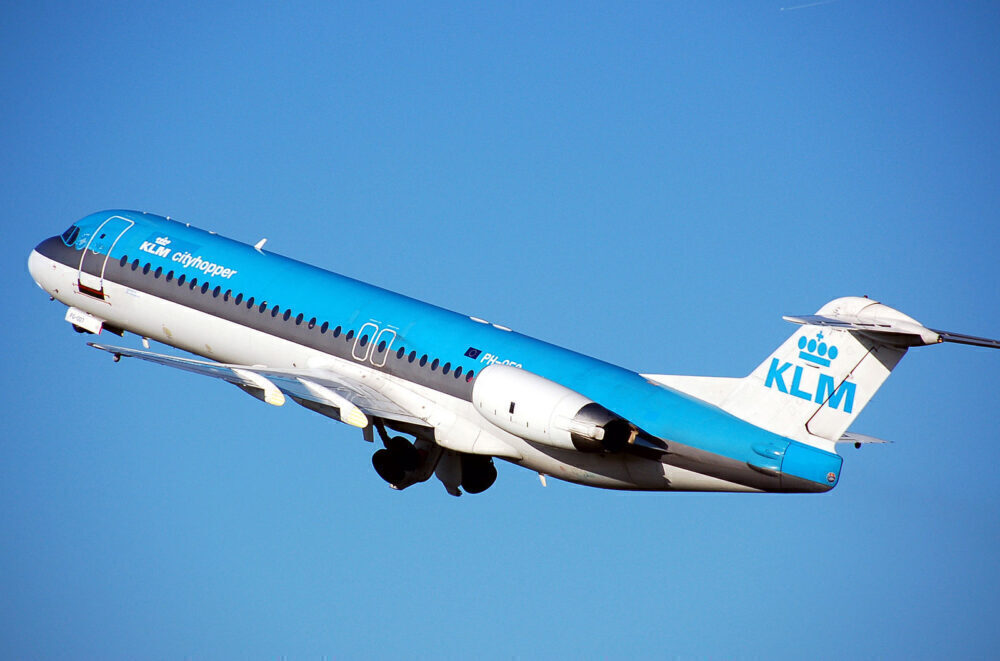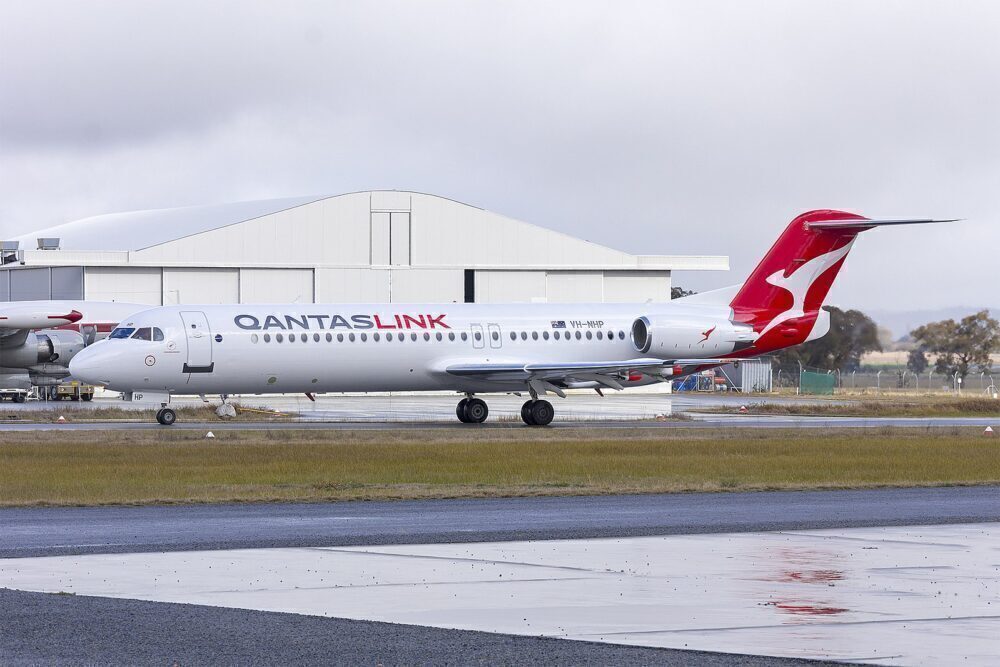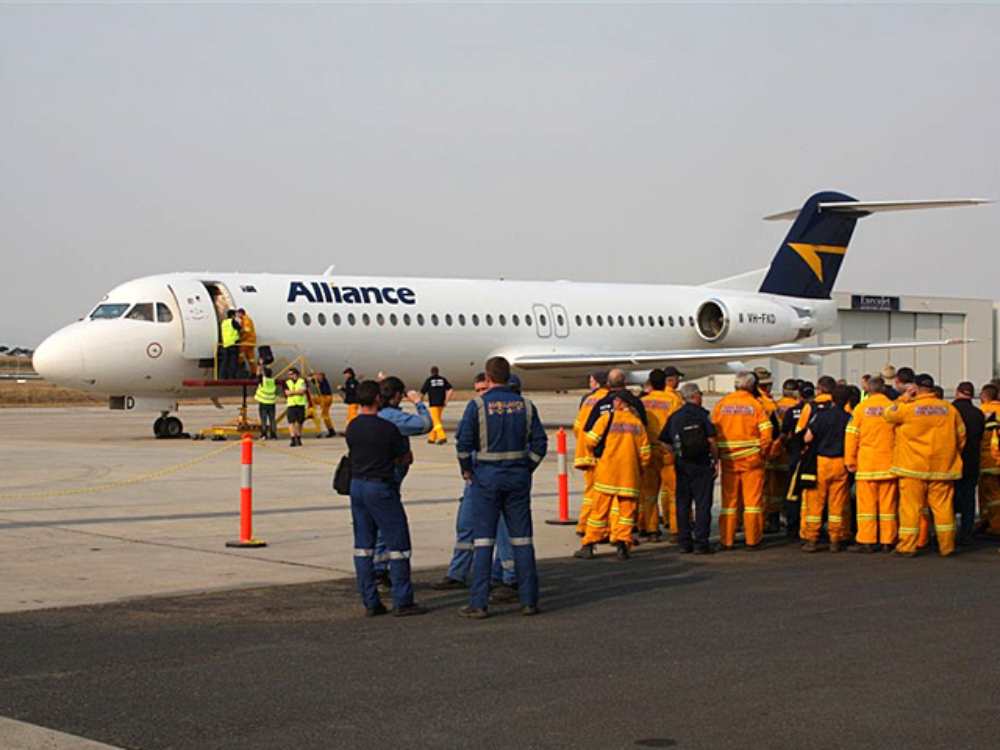It is now over 33 years since the first deliveries of the Fokker 100 were made. Despite the age of the aircraft, it remains an important regional jet – just in an increasingly niche way. In normal scheduled operations, it has just 1% of commercial RJ flights this year.

The continuing use of the Fokker 100, which normally has roughly 100 seats, is seemingly aided by being strong and sturdy while being relatively low-cost. This is especially regarding low acquisition costs in comparison to modern and more fuel-efficient RJs. This means they have low fixed costs, which makes them especially good for low use – just like Allegiant and its then MD-80s.

Now just 1% of all scheduled RJ flights
The F100 has been popular – in a normal sense – in the past decade. After all, fewer than 290 were delivered. In 2011, it had just 3% the world’s total scheduled RJ flights, analyzing OAG data shows, which has reduced to just 1% this year. The aircraft’s use, especially on a scheduled basis, has inevitably been declining each year.
The continuing use of the Fokker 100 comes despite coronavirus, which has seen many older and less fuel-efficient aircraft being retired. There are also multiple alternatives, both larger and smaller, to replace these older jets.
The fact they are still around highlights the amount of support given by Fokker Services to keep them going, together with the important roles often played by the aircraft. This includes scheduled services, fly-in, fly-out (FIFO) mining operations, and other charters.
The Fokker 100 is now mainly seen in remote areas, especially in Australia, Papua New Guinea, and Iran, together with parts of Africa and Europe. Iran’s operators are unable to replace them due to sanctions. It is for this reason that the country’s Mahan Air is the leading airline of the A310, while also being the world’s second-largest A340 operator.

Stay informed: Sign up for our daily and weekly aviation news digests.
The Fokker 100: a throwback
If scheduled flights over the past decade are added up, the world’s top-10 F100 users are as follows. Note: some published airlines used various carriers for F100 flights. SWISS, for example, mainly used Helvetic, but also Contactair and OLT Express Germany at times.
- KLM Cityhopper
- Austrian Airlines
- Iran Aseman
- Virgin Australia
- Air Niugini
- Iran Air
- Avianca
- Qantaslink
- SWISS
- OceanAir

Perth is first for Fokker 100s
Perth, in Western Australia, is very much the world’s best airport to see scheduled Fokker 100s this year. It has three-quarters more movements than second-place Tehran Mehrabad, and well over double the number of third-place Port Moresby in Papua New Guinea.
It’s always interesting to look at routes served by niche aircraft as they often include a good number of places that are rarely discussed. The Fokker 100’s most popular routes don’t disappoint, as follows.
- Lae to Port Moresby
- Paraburdoo-Perth
- Mount Hagen-Port Moresby
- Perth-Port Hedland
- Kalgoorlie-Perth
- Geraldton-Perth
- Shiraz-Tehran Mehrabad
- Brisbane-Gladstone
- Goroka-Port Moresby
- Boolgeeda-Perth

Final words go to Australia’s Alliance
With 26 Fokker 100s and 14 smaller F70s, the vast majority in service, Alliance Airlines is by far the largest user of the aircraft. However, the carrier received its first Embraer 190 in late 2020, some of which will be used on behalf of Qantas from Adelaide. It says the E190s will help with the next phase of growth, but the carrier’s CEO is clear: its F100s will remain for the foreseeable future.
Have you flown the Fokker 100? If so, what are your memories of it? Comment below!
from Simple Flying https://ift.tt/3bnBq7O
via IFTTT
Comments
Post a Comment